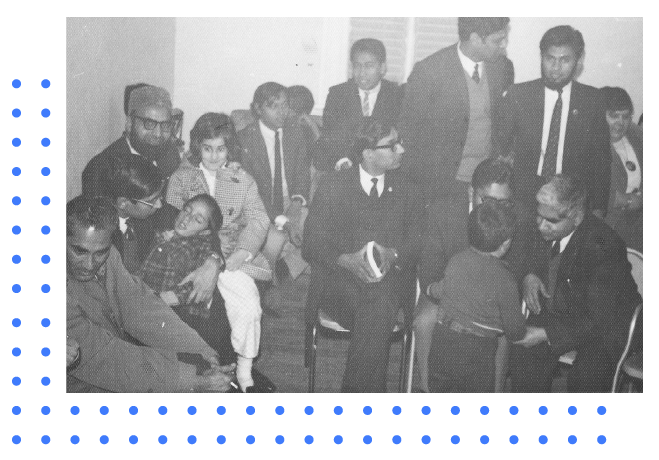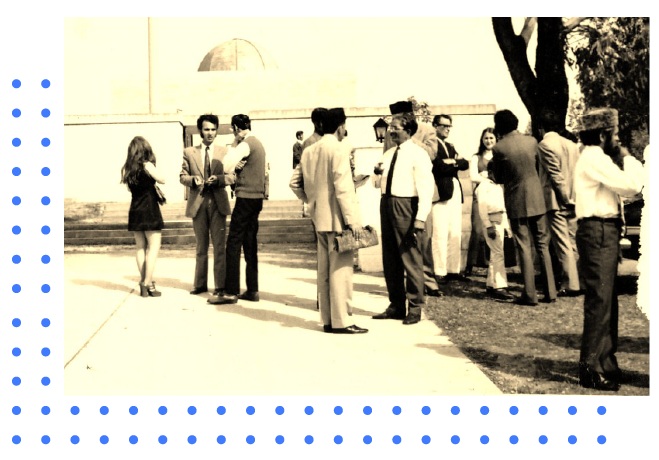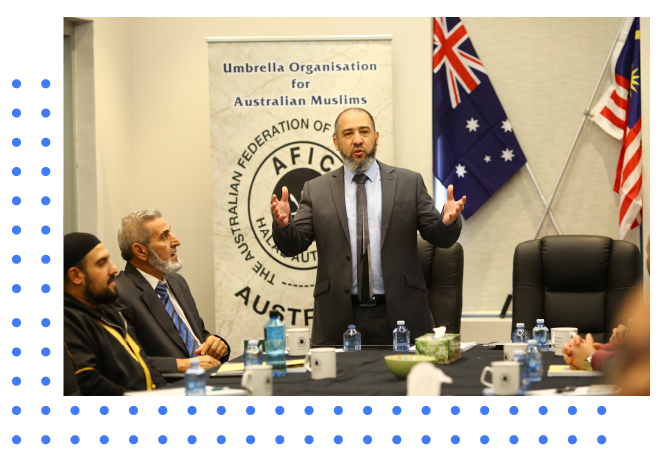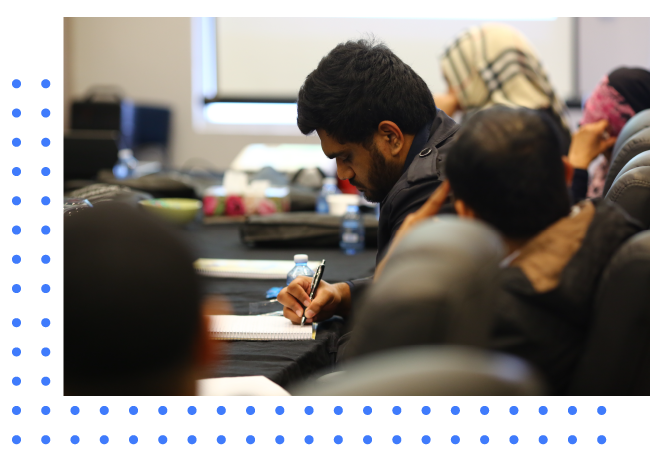In the early 1960’s as Muslim populations grew particularly in Sydney, Brisbane, Melbourne, Adelaide and Perth, associations were set up reflecting ethnic identity within a new environment. As these local associations and Islamic societies grew in number, the Muslims felt the need to unite as a faith community and to have their voices heard at the national level.
In 1964, Muslim leaders decided on an organisational structure that would represent the needs and aspirations of the newly arrived Muslims in Australia. The leaders of the time brought some of these associations together to form a two-tier Australian Federation of Islamic Societies (AFIS).


Forming an Islamic Council
The Executive Committee
AFIC is a not for profit community based organisation managed by a committee of management commonly known as the Executive Committee. The Executive Committee members of AFIC, volunteer their services and are not paid by AFIC. The Executive Committee plays an important role in the organisation both as leaders and decision-makers. It is their responsibility to ensure everything the organisation does supports its vision, purpose and aims as outlined in the organisation’s constitution.
AFIC still follows this three tier model of administration which is represented by its constituent societies at the grass roots level, followed by State and territory Islamic councils at the Federal Council level and Muslims Australia Executive Committee who oversee the general administration of the organisation.


Representation
The levels of representation comprises individuals from representative Islamic State and Territory Councils across Australia, Tasmania Christmas and Co Cos Islands and forms the Federal Congress which gathers once a year to review and evaluate all areas of AFIC’s operations and also undertakes strategic planning as identified by its constituent’s needs and requirements for the year ahead. Collectively they help shape the strategic directions of AFIC and sets priorities for their term of office.
The Federal Council represents their constituent societies during Federal Council meetings which are held several times a year. AFIC’s Executive Committee who are in essence the Board of Management meet approximately once a month, overseeing the overall function of the organisation as well as co-ordinating the day to day business and services of the organisation.
Role of the Committee
The President together with the Vice President, Secretary, Treasurer and Executive Committee members, up to four, provide oversight for all activities that advance AFIC’s effectiveness and sustainability.
The President provides leadership for the organisation with the cooperation and consensus of the Executive Committee. The Secretary arranges Executive Committee meetings while the President chairs all meetings. The President together with the Executive Committee is accountable to the membership of the organisation and other key stakeholders to ensure compliance with all relevant legal and regulatory requirements and seeks guidance from the Federal Congress and/ or Federal Council members around any uncertainties.
The Executive Committee plays a vital role in maintaining the best interest of the organisation and exercises care, skill and diligence in carrying out their roles and obligations.


Election Proccess
The President, vice President, Secretary and Treasurer are elected by The Federal Congress which is made up on member societies and Councils from across the State, Territories of Australia, Christmas Island and Tasmania. The other office bearers are appointed by the President in consultation with the elected officer bearers. The Federal Congress reviews and evaluates all areas of AFIC’s performance and formulates AFIC’s key strategic planning and policy, moving forward.
The Executive Committee of AFIC is elected by the Federal Congress to serve one term of three-year duration. The Executive Committee can be re-elected after completing their first term of office and may hold office for their elected position for a maximum of two terms.
Explore
Subscribe to Email List
Copyright © 2023 Australian Federation of Islamic Councils. All rights reserved.
